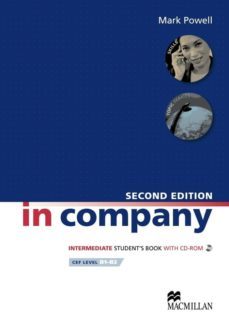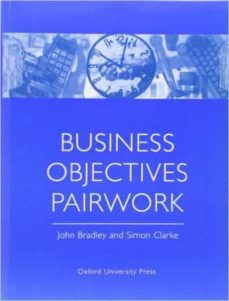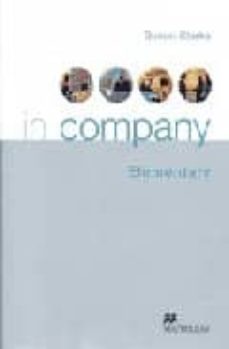Imprescindibles
Más vendidos Libros más leídos eBooks más leídos Todos los libros Todos los libros Autores destacados Series y sagas
Recomendados Libros recomendados Autores destacados Libros que inspiran Vidas con historia LGTBIQ+ English books
Ficción
Literatura Contemporánea Estudios literarios Clásicos Cuentos Poesía Teatro Libros de bolsillo Sagas literarias
Géneros literarios Novela romántica y erótica Novela negra Novela histórica Narrativa fantástica Novela de ciencia ficción Novela de terror Narrativa de humor Narrativa de viajes
No Ficción
Ciencias y tecnología Biología Ciencias Ciencias naturales Divulgación científica Informática Ingeniería Matemáticas Medicina Salud y dietas Formación Idiomas Estilo de vida Libros de Cocina Guías de viaje Narrativa de viajes Deportes Libros de Juegos Manualidades
Humanidades Autoayuda y espiritualidad Ciencias humanas Derecho Economía y Empresa Psicología y Pedagogía Filosofía Sociología Filología Biblioteconomía Estudios filológicos Estudios lingüísticos Estudios literarios Historia y crítica de la Literatura
Infantil
Juvenil
#Jóvenes lectores Narrativa juvenil Clásicos adaptados Libros Wattpad Libros Booktok Libros de influencers Libros de Youtubers Libros Spicy Juveniles Libros LGTBIQ+ Temas sociales Libros ciencia ficción Libros de acción y aventura Cómic y Manga Juvenil Cómic Juvenil Manga Shonen Manga Shojo Autores destacados Jennifer L. Armentrout Eloy Moreno Nerea Llanes Hannah Nicole Maehrer
Libros de fantasía Cozy Fantasy Dark academia Hadas y Fae Romantasy Royal Fantasy Urban Fantasy Vampiros y hombres lobo Otros Misterio y terror Cozy mistery Policiaca Spooky Terror Thriller y suspense Otros
Libros románticos y de amor Dark Romance Clean Romance Cowboy Romance Mafia y amor Romance dramatico Romcom Sport Romance Otros Clichés Enemies to Lovers Friends to Lovers Hermanastros Slow Burn Fake Dating Triángulo amoroso
Cómic y Manga
Novela gráfica Novela gráfica americana Novela gráfica europea Novela gráfica de otros países Personajes, series y sagas Series y sagas Star Wars Superhéroes Cómics DC Cómics Marvel Cómics otros superhéroes Cómics Valiant
Books in English
Books in English Fiction Non Fiction Comic Teen & Young Adult Main Authors Ken Follett Agatha Christie Stephen King Jane Austen Maggie O’Farrell On sale
Books in English for Young Adults Age 13+ Age 15+ Young Adult Authors Rebecca Yarros Sarah J. Maas Brandon Sanderson Ali Hazelwood Alice Oseman
Audiolibros
Literatura Contemporánea Narrativa fantástica Novela de ciencia ficción Novela de terror Novela histórica Novela negra Novela romántica y erótica Historia Historia universal
Humanidades Autoayuda y espiritualidad Ciencias humanas Economía y empresa Psicología y pedagogía Filosofía Infantil Audiolibros infantiles
Ciencia y tecnología Ciencias naturales Divulgación científica Medicina Salud y dietas Arte Cine Música Historia del arte
eBooks
Literatura Contemporánea Narrativa fantástica Novela de ciencia ficción Novela de terror Novela histórica Novela negra Novela romántica y erótica Juvenil Más de 13 años Más de 15 años Infantil eBooks infantiles
Humanidades Autoayuda y espiritualidad Ciencias humanas Economía y Empresa Psicología y Pedagogía Filosofía Historia Historia de España Historia Universal Arte Cine Música Historia del arte
Ciencia y tecnología Ciencias naturales Divulgación científica Medicina Salud y dietas Filología Estudios lingüísticos Estudios literarios Historia y crítica de la Literatura Estilo de vida Cocina Guías de viaje Ocio y deportes
SIMON CLARKE
Recibe novedades de SIMON CLARKE directamente en tu email
Filtros
Del 1 al 4 de 4
MACMILLAN CHILDRENS BOOKS 9780230717145
In Company has established itself as the English course for professionals because of its immediate results through topic-based content, active skills, and real-world tasks that are instantly relevant to everyday business life. In Company Second Edition builds on the success of the original but is now updated and improved with a host of new features. Key features * NEW phrase banks with useful phrases for reference and revision * Five NEW case studies within the Student''s Book reflect real-life business scenarios * NEW audio recordings with authentic native and non-native accents * Units are clearly defined as topic or skills based * Teacher''s Book addresses how to deal with 1:1 classes * NEW Second Edition CD-ROM now includes an interactive glossary and class audio as a downloadable MP3 Student''s Book Each lesson is a stand-alone, fast-track unit to competence in a particular skill that business professionals will meet in their everyday working life. Topics and texts have been chosen to involve, entertain and provoke students into lively discussion, as well as to contextualise key target language. Real-world tasks encourage learners to sharpen their communication skills and draw on their own experiences at work, while a great deal of attention is devoted to helping learners boost their lexical range. Grammar is introduced in a practical business context and is now incorporated into the relevant unit along with the workbook sections. Class Audio The audio component is available on both Cassettes and CDs. Listening activities feature a selection of native and non-native speaker accents to refl ect the variety students will come across in the international business arena. Teacher''s Book More than just a Teacher''s Book, the In Company Teacher''s Book provides a further 20 hours of teaching material through photocopiable worksheets, teaching notes and interleaved pages from the Student''s Book with overprinted answer keys. CD-ROM The In Company CD-ROM for self-study provides extensive practice, linked in topicand in language to the Student''s Book units
Ver más
Tapa blanda
MACMILLAN PUB. LTD. 9780333957226
In Company is a fast-paced, multi-level Business English course for professional adults. The course systematically develops key language skills through moticating activities that reflect the real world of modern business. It has been specifically designed for the in-company language training sector. Stimulating content A wide variety of engaging listening and reading texts provide constant opportunities for discussion and maximise learner involvement. Practical business skills work Challenging real-world tasks encourage learners to sharpen their communication skills and draw on their own experiences at work. Integrated lexical syllabus Great emphasis is placed on helping learners boost their lexical range in terms of word and phrase building, phrasal verbs, collocation, fixed and semi-fixed expressions. Additional self-study 'Lexis links' effectively double the vocabulary input. Systematic approach to grammar Grammar is introduced in a practical business context in the units themselves and comprehensively supplemented in separate self-study 'Grammar links', which give further opportunity for study, practice and personalisation
Ver más
Otros
IRRECUPERABLES 9788485209743
El principal objetivo se Simon Clarke con La teoría de la crisis en Marx es ofrecer un marco rotundo y ampliamente aceptado para el análisis de la crisis desde un punto de vista marxiano. Se trata de una empresa ardua, que ha desafiado en varias generaciones de investigadores. Por supuesto, este libro no resolvio todos los problemas implicados, pero tuvo un formidable impacto y obligo a generar un acuerdo con las tesis aqui desarrolladas. La contribucion de Simon Clarke es doble: en primer lugar, reconstruye cuidadosamente la evolucion del pensamiento de Marx sobre la crisis del capitalismo y esboza debates que, desde finales del siglo XIX, han rodeado la cuestion. En segundo lugar, utilizando la masa de notas dispersas y desorganizadas dejadas por Marx (la mayoria nunca publicadas durante su vida), Clarke intenta esbozar una teoria de la crisis. Al hacerlo, evita con exito el problema que ha lastrado muchos intentos anteriores: la busqueda de la justificacion por parte de Marx de una unica interpretacion de la teoria de la crisis (ya sea la sobreproduccion, el subconsumo, la desproporcion o la caida tendencial de la tasa de ganancia). Hay crisis cuando caen los beneficios realizados, lo que puede ocurrir por varias razones diferentes. En el nivel relativamente abstracto en el que se situa la teoria de la crisis, la causa que precipita las crisis es simplemente irrelevante. Por lo tanto, lo importante a la hora de explicar la vulnerabilidad del capitalismo a las crisis no es
Ver más
Tapa blanda
Del 1 al 4 de 4





























